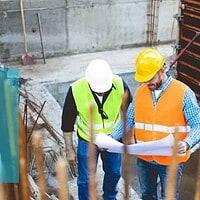Investing in rental properties can be a great way to build wealth and generate passive income. However, becoming a landlord is not as simple as buying property and renting it out. There are many factors to consider, from getting the property ready to understanding your obligations as the property’s manager.
Financing Your Investment
Investing in rental properties often requires financing, either through a mortgage or other loan options. Here are some tips for financing:
- Research Loan Options: Various loan options are available for rental property financing. Consider asking a financial advisor for advice targeted to your specific situation. Once you’ve established yourself with your first property, you can also qualify for loans that specifically benefit established real estate investors, such as DSCR loans.
- Improve Your Credit Score: You can get better loan conditions and interest rates if you have a higher credit score. Prior to beginning your applications, take action to raise your credit score.
- Consider Leveraging Existing Assets: If you own other properties or have significant equity in your primary residence, you may be able to leverage these assets to secure financing.
- Think About Parntering: If you lack the necessary funds to invest in rental property alone, consider partnering with friends, family, or other investors to pool resources and share the risks and rewards of renting.
Preparing the Property for Renters
Before you can rent out a property, you need to ensure it is in good condition and up to code. Here are some steps to get started:
- Inspect the Property: Conduct a thorough inspection to identify any maintenance, repairs, or renovations needed. This includes checking the plumbing, electrical system, HVAC, and structure. Many first-time landlords opt to hire a professional inspector to walk through the property with them; as you grow more experienced, you’ll be able to see issues yourself more easily.
- Act on the Findings: You need to address any issues brought up during the inspection. You may need to fix leaks, repair walls, and more.
- Clean and Declutter: A clean, organized, and well-staged property appeals to potential renters. Make sure to thoroughly clean all rooms, tidy up the yard, keep the grass mowed, etc. Don’t forget to remove any personal belongings.
- Update Appliances and Fixtures: If your property has old, or even vintage, appliances, consider updating them to make the property more attractive. Vintage fixtures may go over well, but appliances can increase utility costs and perform poorly— they may even break down.
Managing the Property
Effectively managing your rental property is essential to ensuring a smooth rental process and minimizing potential issues. Here are some key aspects of property management:
- Screening Tenants: Conduct thorough background and credit checks on prospective tenants to minimize the risk of renting to someone who may not pay rent or may cause damage to the property.
- Setting Rent Prices: Research local rental market trends to determine a competitive rent price for your property.
- Creating a Lease Agreement: Draft a clear and comprehensive lease agreement outlining the terms and conditions of the rental, including rent amount, payment schedule, and tenant responsibilities. It’s a good idea to have this either drafted or reviewed by a lawyer to ensure you cover everything.
- Handling Maintenance and Repairs: Establish a system for handling maintenance requests and repairs. You can handle matters yourself, let the renter handle them per the lease agreement, or hire a property management company. You can also include clauses in the lease agreement if you would like to attempt to DIY an issue before calling in a professional. This can save you and your tenants in the long run if it is a problem you are confident addressing, or it could cost more if you make the problem worse.
- Dealing with Tenant Issues: Be prepared to handle tenant disputes, late rent payments, and other issues that may arise.
Your Responsibilities as a Landlord
You will have certain responsibilities to your tenants and the property. These may vary based on local regulations, but generally include:
- Maintaining A Habitable Property: You are responsible for ensuring the property is safe and habitable. This includes any maintenance issues and the outdoor areas’ condition.
- Respecting Tenant Privacy: Always give proper notice before entering the property for inspections or repairs. Don’t snoop through your tenant’s belongings or ask prying questions about their lives.
- Handling Security Deposits: You are responsible for collecting and returning the renters’ deposit. Have a procedure in place for pre-entry and post-entry inspections, including photographic evidence of the property’s before and after condition. Keep any invoices from having to make repairs due to tenant damage. If you need to keep the deposit, you need evidence to prove why and for what.
- Complying With Anti-Discrimination Laws: You must follow fair housing laws and not discriminate against potential tenants based on race, religion, sex, ethnicity, gender, disability, or familial status.
Opening House
Investing in rental properties can be a rewarding and profitable venture, but it requires careful planning and attention to detail. Don’t sign anything if you aren’t confident about the terms and conditions, and only work with someone you trust— even then, have a firm contract between you. We hope this guide has helped you understand the essentials of property management and to prepare for your first rental. Best of luck with your future investments!















